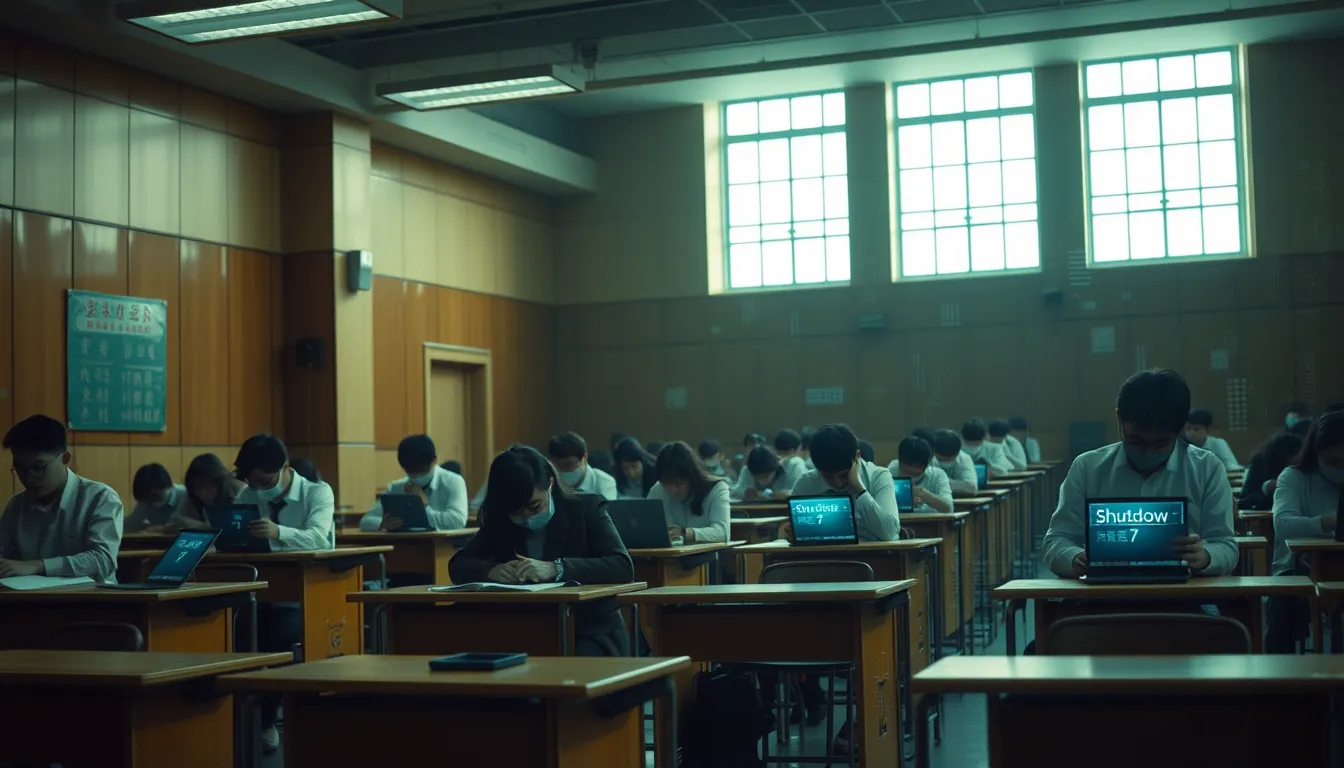Now Reading: Chinese Exam AI Ban: Upholding Academic Integrity in Exams
-
01
Chinese Exam AI Ban: Upholding Academic Integrity in Exams
Chinese Exam AI Ban: Upholding Academic Integrity in Exams

Chinese Exam AI Ban: Upholding Academic Integrity in Exams
In recent years, the rapid spread of artificial intelligence has revolutionized many sectors, including education. However, concerns about fairness and academic integrity have prompted Chinese authorities to take decisive measures. The Chinese exam AI ban, implemented during critical higher education entrance exams, is a clear response to potential misuse of AI tools in academic testing.
Overview of the Chinese Exam AI Ban
The Chinese exam AI ban is a sweeping initiative aimed at preserving the sanctity of examinations. Amid rising concerns that AI tools could be exploited to gain unfair advantages, Chinese regulators have restricted access to a range of digital assistants and chatbots. This measure is designed to ensure that every student relies solely on their own knowledge during high-stakes testing. By doing so, officials aim to maintain fairness and prevent academic misconduct in the exam environment.
Key Points of the Ban:
- Ensures that all students face identical conditions.
- Prevents unauthorized digital assistance during examinations.
- Reinforces traditional testing methods that evaluate genuine competence.
Impact on Higher Education and College Exams
The ban has stirred significant discussion among educators, policymakers, and technology providers. By shutting down specific AI tools during the exam season, the government reinforces its commitment to academic integrity, especially during the college exam period. This policy not only addresses immediate concerns during peak testing times but also sets the stage for long-term regulatory frameworks in education.
The initiative has both supporters and critics. Proponents argue that eliminating AI assistance levels the playing field and preserves the fundamental objective of exams – accurately assessing a student’s knowledge and problem-solving abilities. Others, however, worry that such restrictions may limit the beneficial use of technology in fostering personalized learning experiences outside the exam environment.
Digital Cheating Prevention and Academic Integrity
In today’s digital age, ensuring fair testing practices has become more challenging. The Chinese exam AI ban aims to combat digital cheating by removing shortcuts that may compromise academic integrity. Students are now expected to rely entirely on their preparation and understanding without external technological help.
The decision corresponds with wider academic policies that promote integrity in education. Here are some ways the ban supports fair testing:
- Reducing the risk of digital misconduct: With AI tools disabled during exams, the likelihood of unauthorized assistance is significantly lowered.
- Enhancing the credibility of examination results: The ban reassures the public that exam scores are a true reflection of a student’s abilities.
- Setting a precedent for similar policies: Other educational systems may adopt similar measures to ensure fairness in exam procedures.
How China is Managing AI in Higher Education
Even with the ban in place, the conversation about AI in education is far from over. Chinese education authorities are actively exploring ways to integrate AI in controlled environments that uphold academic integrity. For instance, discussions are underway about using AI for administrative tasks, data analysis, and even personalized learning platforms that do not compromise the exam process.
Efforts to manage AI carefully underscore a proactive approach. Chinese policymakers are balancing the need to embrace technological innovation with the imperative to maintain a level playing field during examinations. By doing so, they seek to harness the transformative power of AI while mitigating any risks related to academic dishonesty.
Challenges and Future of AI Regulation in Education
The Chinese exam AI ban is not without its challenges. As digital tools become increasingly sophisticated, regimens must evolve to keep pace with technological advancements. Some of the key challenges include:
- Keeping up with rapid AI developments: Technological innovations can quickly outpace regulations, demanding constant updates to policies.
- Balancing innovation with fairness: While AI offers valuable educational benefits, its misuse during exams can undermine established academic standards.
- Global implications: Other countries and educational institutions are keenly observing China’s approach, which may influence global academic policies.
Looking ahead, the future of AI regulation in education looks promising if a balanced approach is maintained. Continuous collaboration between educators, technology experts, and policymakers will be essential for evolving these guidelines in step with digital trends. Moreover, platforms such as the Ministry of Education of the People’s Republic of China (visit http://en.moe.gov.cn for more information) are pivotal in disseminating updated policies and guidelines across the educational landscape.
Conclusion
The implementation of the Chinese exam AI ban represents a critical juncture in the evolution of educational integrity and digital policy. As China navigates the delicate balance between fostering innovation and preventing academic misconduct, this approach serves as a reminder that the benefits of digital technology must never come at the expense of fairness in education.
In summary, this ban is a decisive move designed to maintain the integrity of one of the most important elements in a student’s academic journey – the examination process. As discussions continue on best practices for integrating technology in learning environments, the Chinese exam AI ban stands as a beacon for academic institutions worldwide: a commitment to uphold fairness, merit, and true student achievement in an age of rapid digital change.

























